Skopje, 10 May 2016
Officially unveiled today (10 May 2016) at the fourth annual conference to mark International Day Against Homophobia, Transphobia and Biphobia, ILGA Europe’s 2016 Rainbow Europe package reveals an increasingly unequal picture of developments for lesbian, gay, bisexual, trans and intersex people across Europe.
Rainbow Europe 2016 showcases the current state of play of the laws, policies and practices that affect LGBTI people in Europe today. This year’s benchmarking exercise shows three distinct patterns:
- countries who are demonstrating leadership by introducing standard-setting equality measures;
- countries who are now standing still, including some traditionally seen as progressive;
- and the countries who are actively targeting LGBTI people with restrictive laws.
The latest Rainbow Europe Map, which reflects legal and policy developments, confirms that a few countries are still setting new standards for LGBTI equality and are being propelled upward on the country ranking as a result. Unfortunately, too few countries fall into this first category.
In the countries at the bottom of the country ranking, LGBTI people and their families are faced with a scenario where their rights are actively being eroded. ILGA-Europe’s latest Rainbow Europe package contains a stark reminder that Europe is not just damaged by slowing legislative process. The absence of supportive laws and policies is one thing, the legalisation of oppression is another threat altogether. Regressive laws, targeting both individuals and the work of LGBTI activists and NGOs, are a pernicious and real threat in many European countries.
Laws by themselves don’t automatically mean that life is easy – or even safe – for LGBTI people in all the countries at the top of the Rainbow Europe country ranking. A truly accurate picture is one that combines legal conditions and living conditions, that’s why it’s important to use the Map and the Annual Review in tandem.
Rainbow Europe Map and Index
The Rainbow Europe Map ranks 49 European countries on their respective legal and policy practices for LGBTI people, from 0-100%.
| Top 3, Rainbow Europe Map 2016 | Bottom 3, Rainbow Europe Map 2016 |
| 1. Malta – 88% | 47. Armenia – 7% |
| 2. Belgium – 82% | 48. Russia – 7% |
| 3. United Kingdom – 81% | 49. Azerbaijan – 5% |
For the first time ever, Malta appears at the top of the Rainbow Europe country ranking. Now at number 1 with 88%, the island nation has risen from third place in 2015. (Malta was 11th on the Rainbow Europe Index back in 2014.) Belgium is in second place with 82% and the United Kingdom completes the top three on 81%. Azerbaijan (49th place, 5%), Russia (48th place, 7%) and Armenia (47th place, 7%) continue to appear at the lower end of the Map.
In order to create the country ranking, ILGA-Europe examine the laws and policies in 49 countries using a set of criteria – from May 2016, the number of individual criteria used rises to 52. These criteria are divided between six thematic topics: equality and non-discrimination; family; hate crime and hate speech; legal gender recognition and bodily integrity; fundamental freedoms and asylum.
Annual Review
With the Annual Review, ILGA-Europe have compiled a detailed publication that lists the advances made at national level country-by-country in the 12 months from January to December 2015. It also looks at the LGBTI equality work carried out by organizations such as the European Union, the United Nations, the Organization for Security and Cooperation in Europe and the Council of Europe.
The situation in Republic of Macedonia
Republic of Macedonia is the 36th country out of 49 on the Rainbow Europe Map. With only 18.55% it is the country with the lowest percentage of LGBT rights protection in the region. The leading country in the region is Croatia with 67%. Countries that are below Macedonia are: Azerbaijan, Russia, Armenia, Monaco, Turkey, Belarus, Ukraine, San Marino, Moldova, Latvia, Lithuania, Liechtenstein, and Poland.
Out of the 52 individual criteria from the 6 categories, in Macedonia only 8 are met. Those are:
- Equality and Non-discrimination category
- Good and Services (sexual orientation),
- Health (sexual orientation),
- Education (sexual orientation)
- Family category
- No constitutional limitation on marriage,
- Legal gender recognition and bodily integrity category
- Name change
- Freedom of assembly, association and expression
- Public events held, no state obstruction (last 3 years),
- Associations operate, no state obstruction (last 3 years),
- No laws limiting expressions (national/local)
